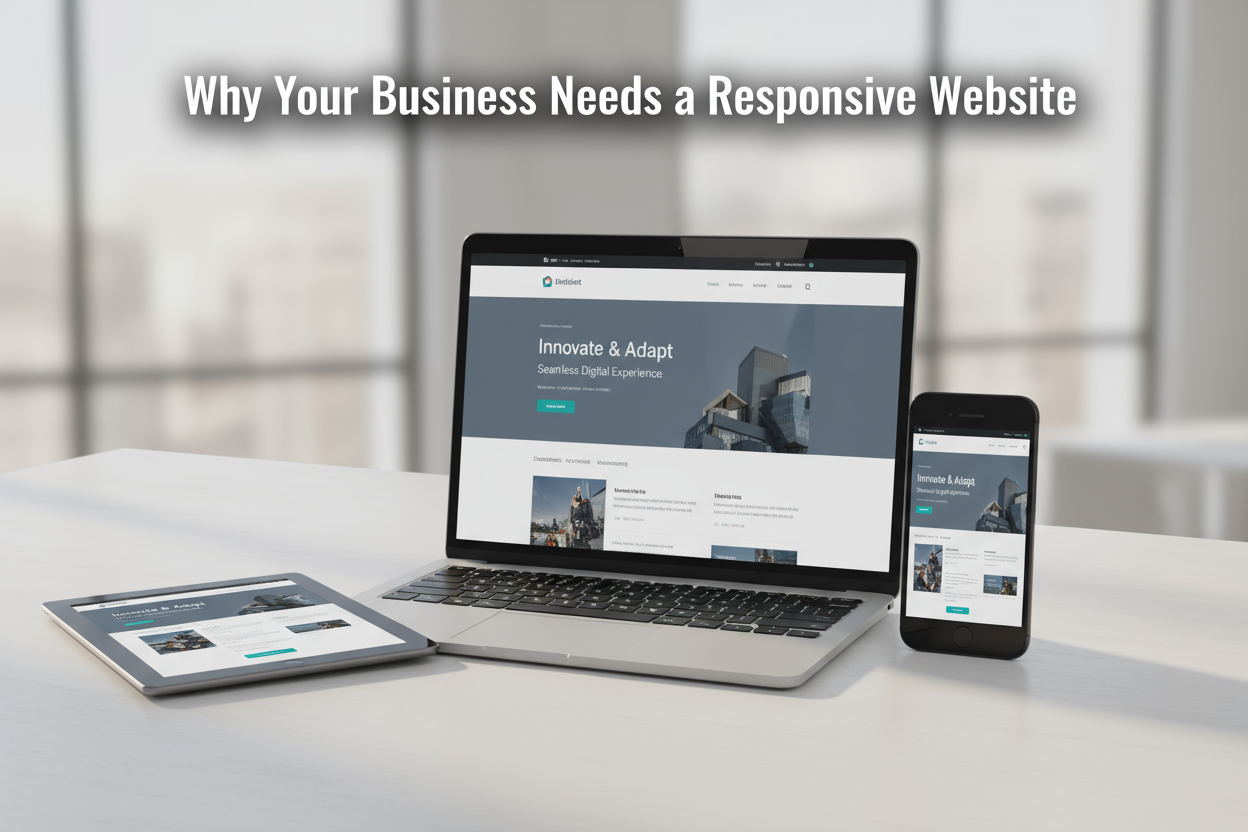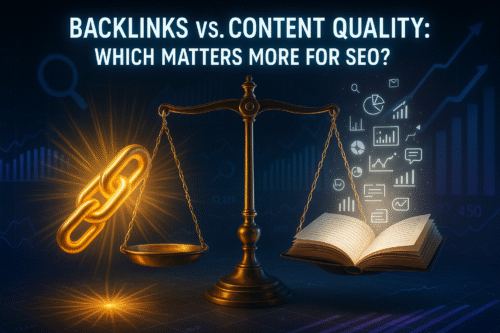In today’s fast-paced digital world, your website is your first impression — and often your strongest marketing tool. But if your website doesn’t adapt to every device seamlessly, you’re losing customers before they even see what you offer. A responsive website is no longer an option; it’s a necessity for every modern business striving to stay competitive and visible online.
What is a Responsive Website?
A responsive website automatically adjusts its layout, images, and content to fit any screen size—whether viewed on a desktop, tablet, or smartphone. Unlike static websites, responsive designs use flexible grids and adaptive images that scale perfectly across all devices.
In simple terms, a responsive website ensures your users have a great experience, no matter how they access your site. This adaptability directly influences engagement, conversion rates, and even search engine rankings.
1. Mobile Traffic Dominates the Internet
More than 60% of global website traffic now comes from mobile devices, and that number continues to rise. If your site isn’t optimized for smartphones or tablets, you’re automatically alienating a majority of your potential visitors.
A mobile-friendly, responsive website ensures that your pages load quickly, text is readable without zooming, and navigation is effortless—all key factors that keep users engaged.
Search engines like Google prioritize mobile-optimized sites. Without one, your website may suffer a drop in search rankings, making it harder for potential customers to find you.
2. Improved User Experience (UX) Means Higher Conversions
A positive user experience is the cornerstone of online success. A responsive website provides consistent design, fast loading speeds, and easy-to-navigate menus that enhance usability.
When users can easily find information and navigate your pages, they’re more likely to stay longer and take action, whether that’s making a purchase, filling out a form, or subscribing to your services.
On the other hand, poor mobile performance leads to high bounce rates. In fact, over 40% of users abandon a site if it takes longer than 3 seconds to load. A responsive design helps you retain these visitors by ensuring speed and functionality across devices.
3. SEO Benefits: Better Rankings and Visibility
Search engines favor websites that provide excellent user experiences, and responsiveness is a big part of that.
Since Google’s Mobile-First Indexing update, the mobile version of your site is considered the primary version for ranking. This means that if your site isn’t responsive, your SEO performance will suffer.
A responsive site also eliminates the need for duplicate URLs or content for mobile and desktop versions. This streamlined approach helps search engines crawl your site more effectively, improving your overall visibility and authority.
4. Cost-Effective and Easy Maintenance
Maintaining separate websites for desktop and mobile users doubles your workload, costs, and risk of inconsistencies.
A responsive design consolidates everything into one website, saving you time and money in the long run. Updates, new content, and SEO strategies only need to be implemented once, ensuring consistent branding and messaging across all devices.
This also improves your marketing ROI since a single, unified website is easier to manage and optimize.
5. Faster Loading Speeds Enhance Performance
Website speed directly impacts both user satisfaction and SEO rankings. Responsive websites load faster because they use optimized images and smart coding practices that automatically adjust to the device.
With Google’s Core Web Vitals now influencing rankings, responsiveness helps ensure that your website performs well on all speed and usability metrics.
Faster websites not only please search engines but also increase conversion rates. Studies show that a 1-second delay can reduce conversions by 7%—a statistic that underscores the importance of responsiveness.
6. Increased Customer Retention and Trust
A professional, responsive design communicates credibility and reliability. Users are more likely to trust and return to a website that looks clean, functions smoothly, and feels secure on any device.
Consistency in appearance and usability builds brand trust—a key factor in turning first-time visitors into loyal customers. When your business provides a seamless experience across screens, you demonstrate that you value your audience’s time and satisfaction.
7. Future-Proofing Your Online Presence
Technology evolves quickly. New devices, screen sizes, and browsers are constantly emerging. A responsive website future-proofs your business, ensuring your site adapts automatically to whatever comes next.
Instead of redesigning your website every time a new device enters the market, responsive design guarantees long-term compatibility. This adaptability helps your business stay modern, relevant, and competitive in an ever-changing digital landscape.
8. Higher Social Media Engagement and Sharing
Many social media users browse through their feeds on mobile devices. When they click your shared link, a non-responsive site can turn them away instantly.
A mobile-optimized experience encourages visitors to stay and explore your content, making them more likely to share it with others. This creates a cycle of increased engagement, higher visibility, and more inbound traffic from social media channels—boosting your brand’s online presence.
9. Better Analytics and Reporting
Managing multiple site versions complicates tracking and analytics. With a responsive website, your analytics are consolidated into one platform, providing accurate insights into how users interact across all devices.
You can easily track where traffic comes from, which devices perform best, and what content converts the most. These insights allow you to refine your marketing strategies and improve user experience continuously.
10. Competitive Advantage in Your Industry
In a marketplace where every brand is fighting for attention, a responsive website gives you the competitive edge. Businesses that invest in responsiveness show they understand modern consumer behavior—and customers reward that awareness.
If your competitors haven’t yet optimized their sites, you gain a significant advantage. If they have, a superior responsive design ensures that your brand still stands out for its professionalism, ease of use, and performance.
Conclusion: The Future Belongs to Responsive Businesses
A responsive website is not just a design trend—it’s the foundation of successful digital marketing. It ensures your business is accessible, user-friendly, and search-engine-ready.
From improving SEO rankings and customer experience to reducing costs and boosting conversions, responsiveness is the smartest investment you can make for your online growth.
In the era of mobile dominance and digital competition, a non-responsive website is equivalent to locking your virtual doors. The sooner your business embraces responsive design, the faster you’ll grow and thrive online.







